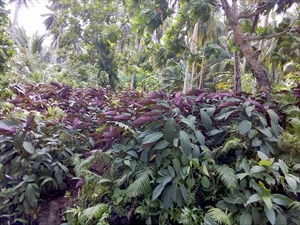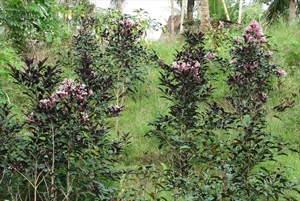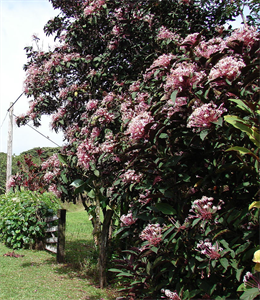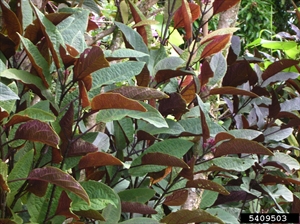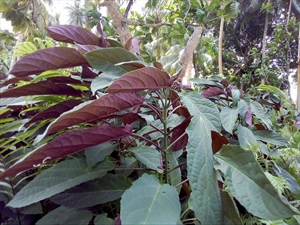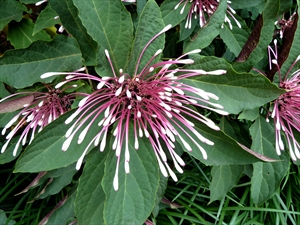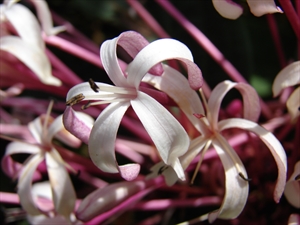- Restricted. Asia, North America (restricted), Caribbean, Oceania. In many Pacific islands.
- Important invasive weed, growing rapidly, producing large amounts of seed and root suckers, forming dense thickets along roadsides, waste grounds, disturbed areas. It has potential to invade relatively intact native forests.
- Perennial shrub up to 5 m, stems almost four-sided. Leaves, in pairs, oblong, 15-20 cm long, green upper surface, dark-purple below. Flowers, many, in showy flat-topped clusters, each a narrow pink tube, 5-8 cm long, ending in five-curved white petals. Fruits, earth-shaped, with four seeds
- Spread: root suckers; seeds by birds and other animals; contaminants of sand and soil; trade in ornamentals.
- Biosecurity: high risk of introduction, showy flowers, medicinal use.
- Biocontrol: no information.
- Cultural control: hand weed or dig out when small.
- Chemical control (see Honolulu rose Fact Sheet no. 443): foliar (picloram; triclopyr; 2,4-D; metsulfuron-methyl; picloram + triclopyr, picloram + 2,4-D; dicamba + 2,4-D); cut-stump (same herbicides); soil (fluroxypyr). In Fiji, glyphosate.
Pacific Pests, Pathogens and Weeds - Online edition
Pacific Pests, Pathogens, Weeds & Pesticides
Fireworks (445)
Fireworks; it is also known as firecracker, Philippine glory-bower, or starburst bush. CABI prefers the name bronze-leaved clerodendrum.
Clerodendrum quadriloculare. It is a member of the Lamiaceae.
AUTHORS Grahame Jackson, Aradhana Deesh & Mani Mua
Information from CABI (2019) Clerodendrum quadriloculare (bronzed-leaved clerodendrum). Invasive Species Compendium. (https://www.cabi.org/isc/datasheet/14334); and from Pacific Island Ecosystems at Risk (2013) Clerodendrum quadriloculare. (http://www.hear.org/pier/species/clerodendrum_quadriloculare.htm). Photos 1-4 Forest and Kim Star, Star Environmental, Bugwood.org.
Produced with support from the Australian Centre for International Agricultural Research under project HORT/2016/185: Responding to emerging pest and disease threats to horticulture in the Pacific islands, implemented by the University of Queensland, in association with the Pacific Community and Koronivia Research Station, Ministry of Agriculture, Fiji.
